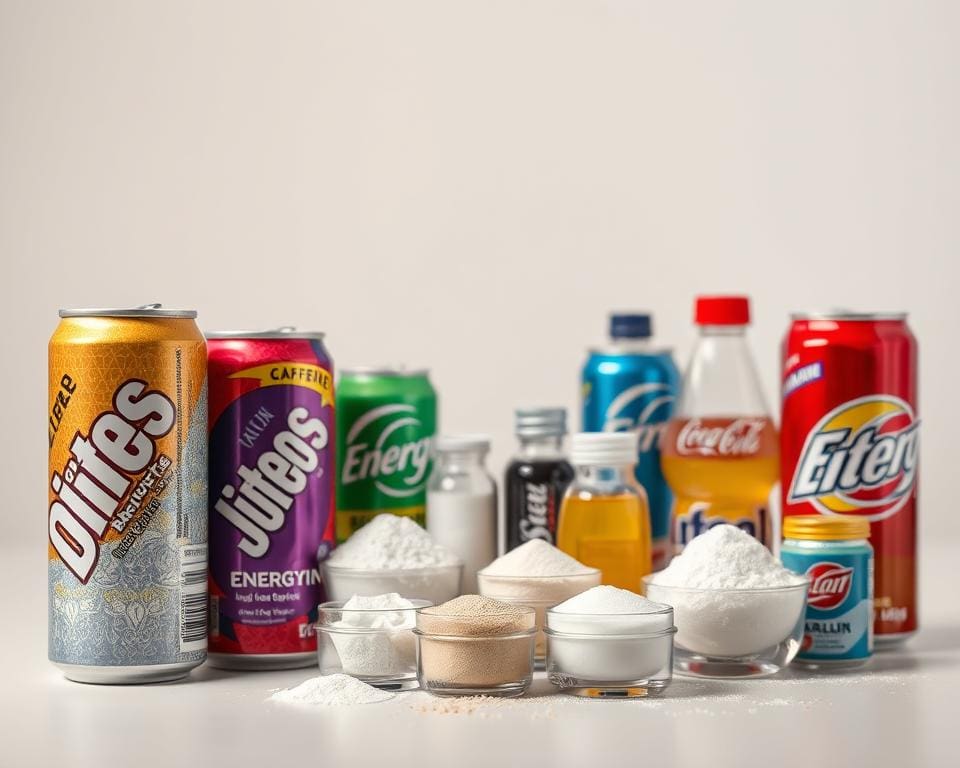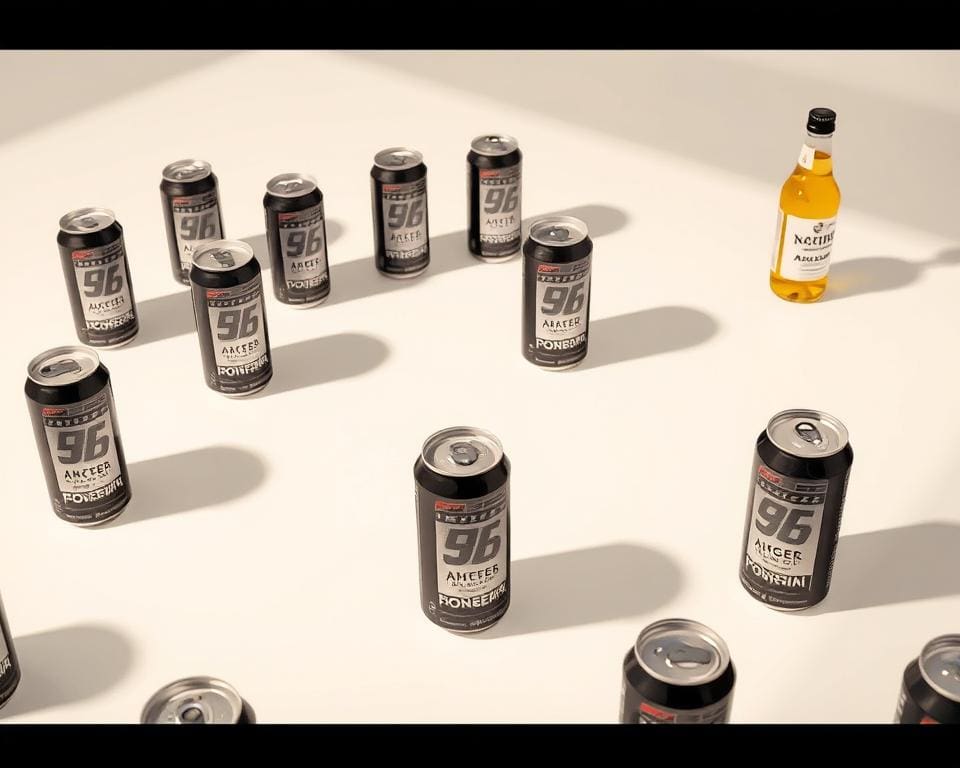The rising popularity of energy drinks has sparked numerous questions among consumers, particularly regarding their alcohol content. Many individuals may wonder, does energy drinks contain alcohol? This inquiry is vital as the distinction between energy drinks and alcoholic beverages often blurs, especially in social settings where these drinks are commonly consumed together. Understanding the energy drinks alcohol content is crucial for making informed choices, especially for those seeking an energy boost while being mindful of their health safety. As we delve deeper into this subject, it’s essential to clarify common misconceptions and raise awareness about the implications of consuming these products.
Understanding Energy Drinks and Their Ingredients
Energy drinks have gained significant popularity due to their promise of enhanced energy and mental focus. Understanding the ingredients in energy drinks is essential for consumers aiming to make informed choices about their consumption. These beverages typically contain a blend of stimulants, sugars, and vitamins, each contributing to their overall effect.
Common Components of Energy Drinks
The formulation of energy drinks often includes the following components:
- Caffeine: A primary ingredient known for its stimulating properties, caffeine enhances alertness and performance.
- Taurine: An amino acid that may support physical performance.
- Glucuronolactone: Often included to purportedly improve endurance.
- B Vitamins: Essential for energy metabolism, these vitamins help convert food into energy.
- Sugar: Provides a rapid energy source but can contribute to a sugar crash later.
Potential Effects of Energy Drink Ingredients
The ingredients in energy drinks are designed to provide immediate energy boosts and improve concentration. While caffeine can indeed elevate mood and enhance physical performance, excessive intake may have negative repercussions such as insomnia, heart palpitations, and feelings of anxiety. The blending of these ingredients has raised concerns, particularly regarding energy drinks and alcohol consumption. Mixing these two can mask the effects of alcohol, leading to unintended overconsumption. Understanding these interactions is vital for health-conscious individuals.

Does Energy Drinks Contain Alcohol
The relationship between energy drinks and alcoholic beverages has garnered significant attention in recent years. Understanding the legal aspects surrounding these products is crucial for consumers, particularly in the UK. Various regulations dictate what can be classified under the umbrella of energy drinks, showcasing how these legal frameworks operate. Key organisations such as the Food Standards Agency (FSA) play an essential role in ensuring public safety and public health.
The Legal and Regulatory Perspective on Alcohol in Energy Drinks
In the UK, energy drinks are primarily defined by their caffeine content rather than their alcohol levels. Products that incorporate alcohol are often marketed separately, and these classifications can lead to public confusion. The Food Standards Agency oversees regulations that stipulate what ingredients can be included in energy drinks, focusing particularly on caffeine and sugar content, while alcohol-infused options exist within a different regulatory framework.
Alcohol infused energy drinks represent a unique category that raises concerns among health professionals. Regulatory bodies highlight potential health risks associated with these beverages, given that consumers may underestimate the combined effects of alcohol and caffeine. Instances of alcohol infused energy drinks on the market demonstrate how these products can blur the lines between energising and intoxicating effects, prompting scrutiny over their marketing practices.
Are Energy Drinks Alcoholic?
Understanding the distinction between regular energy drinks and those infused with alcohol is crucial, especially as the popularity of such beverages rises. Brands like Four Loko and Buzzed have successfully blended energy with a kick, creating unique offerings that cater to adventurous consumers. These Alcohol-Infused Energy Drinks are marketed vigorously in social settings, appealing particularly to younger demographics seeking novel experiences.
Distinguishing Between Regular Energy Drinks and Alcohol-Infused Options
Regular energy drinks, such as Red Bull and Monster, focus on providing a boost of energy through caffeine and other stimulants. In contrast, Energy Drinks with Alcohol combine the effects of alcohol with the energising elements of traditional energy drinks. This fusion raises important questions about safety and consumer awareness.
Market trends indicate a growing acceptance of alcohol-infused beverages, with increasing consumption rates among young adults. Recent surveys show that over 30% of young drinkers have tried Alcohol-Infused Energy Drinks at least once. This shift in consumption patterns reflects a changing landscape in social interactions, where traditional boundaries are blurred for the sake of new experiences.
Alcohol in Energy Drinks: Health Risks and Concerns
The combination of alcohol and energy drinks has raised numerous concerns regarding their effects on health. The interplay between these elements can lead to impaired judgement and hazardous behaviours. When individuals consume Alcohol in Energy Drinks, the stimulating effects of caffeine mask the sedative effects of alcohol. This phenomenon may entice drinkers to consume more than intended, resulting in dangerous consequences.
Impact on Health and Wellbeing
Research indicates that the consumption of Alcohol in Energy Drinks can have detrimental effects on both physical and mental health. Users may experience:
- Increased heart rate, often leading to cardiovascular stress
- Severe dehydration, resulting from the diuretic properties of both alcohol and caffeine
- Heightened anxiety and mood disturbances due to altered brain chemistry
- Risky behaviours prompted by lowered inhibition
These factors significantly contribute to the overall Impact on Health and Wellbeing, urging individuals to consider safer consumption practices.
Long-term Effects of Mixing Alcohol and Energy Drinks
Ongoing use of Alcohol in Energy Drinks can lead to long-term health issues, including increased tolerance to alcohol and caffeinated beverages. This can escalate to dependency or even addiction. Studies have shown that:
- Frequent mixing may worsen cognitive function over time
- Physical health complications, such as liver damage, can arise
- Mental health challenges, including depression, can be exacerbated
Awareness and education about these long-term effects are crucial for making informed choices regarding consumption. As research evolves, the conversation around Alcohol in Energy Drinks continues to highlight the need for caution.
Popular Energy Drinks with Alcohol and Their Market Trends
The landscape of alcohol-infused energy drinks in the UK has gained significant traction, with brands like Four Loko and Rockstar’s alcoholic variants leading the charge. These beverages typically feature a blend of stimulating caffeine and alcoholic content, appealing primarily to younger demographics looking for a buzz during social gatherings. The energy drinks alcohol content in these products can vary widely, creating a distinct niche for those seeking both energy and exhilaration in a single serving.
Recent market trends for alcohol-infused energy drinks demonstrate a shift towards flavours and formulations that resonate with health-conscious consumers. Brands are increasingly focusing on natural ingredients and lower-calorie alternatives, responding to growing awareness about health implications associated with excessive consumption. This evolution not only caters to taste preferences but also aligns with regulatory pressures that aim to ensure safer products in the market.
Exploration of consumer behaviour reveals that alcohol-infused energy drinks are particularly popular in nightlife settings, offering an energetic boost during social events. The blend of alcohol and caffeine is appealing to many for its ability to promote a heightened sense of enjoyment while allowing consumers to remain active. As trends in the UK market continue to evolve, it is crucial for brands to adapt their strategies, positioning themselves as viable options for a discerning consumer base that prioritises both flavour and safety in their beverage choices.









